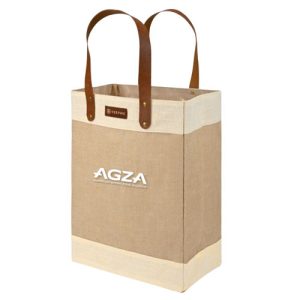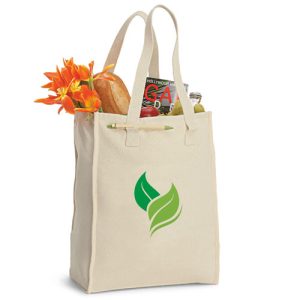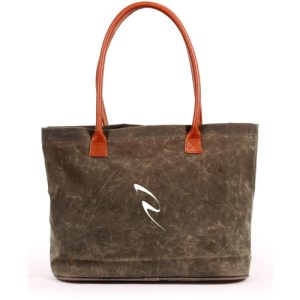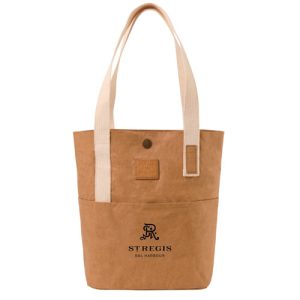ECO-FRIENDLY TOTES
A Pathway to a Greener Future




Totes, backpacks and other carrier bags are popular for business, travel, conventions and trips to the grocery store, often featuring corporate branding. Those made from natural materials such as cotton, jute, linen, and bamboo are kept, cleaned and reused for years while synthetic and non-woven materials are quickly discarded, contributing to the plastic waste problem.
Spending more on a natural fabric carrier that will be kept and valued, promotes both corporate branding and sustainability goals.
If natural materials are out of budget, consider paper options which are less expensive and, after being used a few times, are curbside recyclable. Skip the plastic and non-woven materials.
Cotton
Plant-Based & Biodegradable

Both 100% cotton and Organic cotton are biodegradable and renewable. While cotton requires a lot of water to grow, organic cotton reduces chemical use and supports healthier ecosystems
Cotton
Plant-Based & Recyclable

Cotton carriers are durable, washable and reusable for years making them a sustainable choice.
Jute, Burlap & Hemp
Plant-Based & Biodegradable

Jute comes from vegetable fiber of jute plants. Used for totes and other carriers known for affordability and biodegradability.
Hemp comes from fibers of the hemp plant. Known for strength, durability and eco-friendliness. Rougher texture compared to linen and often used in bags and ropes.
Burlap is a coarse woven fabric made from jute or other vegetable fibers. Has a rough texture and open weave. Commonly used for sacks, bags and upholstery.
Paper
Plant-Based & Recyclable

Modern paper totes are durable, washable and reusable, often reinforced with materials like woven cotton handles. They are curbside recyclable and offer a sustainable alternative to plastic and non-woven materials.
Waxed Canvas
Plant-Based & Biodegradable

Adding a natural paraffin wax coating to cotton canvas makes it moisture-resistant and durable. Totes and carriers made from waxed canvas will biodegrade, but the wax coating slows down the process.
Bamboo
Plant-Based & Biodegradable

Bamboo is increasingly popular for bags and totes due to its unique properties. It is highly renewable, biodegradable and hypoallergenic. The fibers are strong and resilient making it a durable choice.
ENVIRONMENTAL IMPACT
Kick the plastic habit.
Totes made from non-woven poly and recycled plastic contribute to plastic pollution, which when disposed of, often end up in oceans where they harm wildlife and ecosystems. Recycled plastic presents recycling challenges due to its mixed composition and limited recyclability. Additionally, since recycled plastic is more expensive than virgin plastic, it does not significantly reduce the production of new plastics.
In contrast, totes made from natural materials offer many benefits. They are durable, reusable and washable, giving them a longer lifespan. Natural materials are also recyclable and biodegradable, contributing less to environmental pollution. Each material has its unique characteristics and considerations, such as water usage for cotton and production costs for linen and silk, which affect their eco-friendliness.
Choosing natural materials also has notable marketing advantages. Because the item is kept and reused, your branding has a longer life. It’s durability speaks well for the value placed on quality over cost and purchasing products that are recyclable and biodegradable supports company sustainability goals.
Coming Next…Earth-Friendly Apparel.
